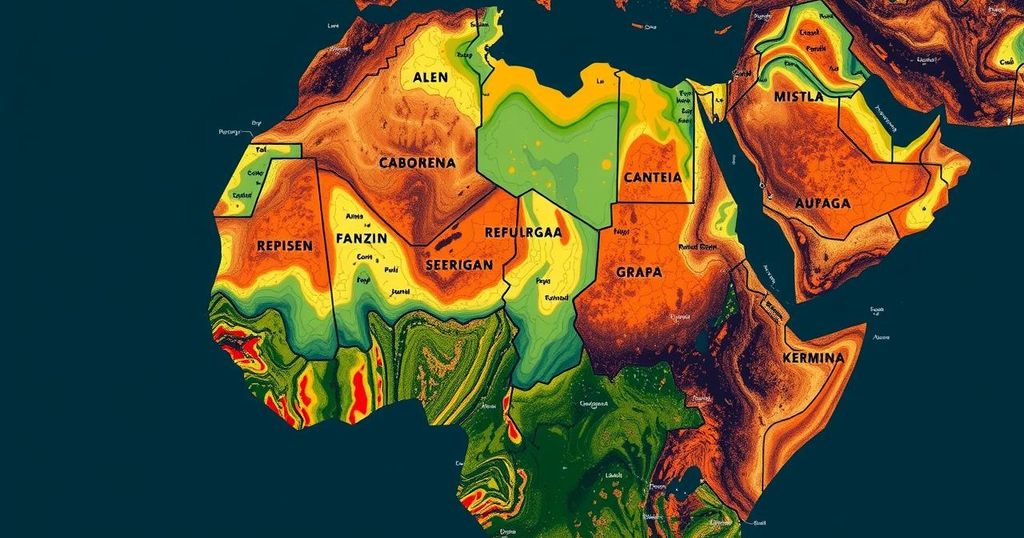Climate, Peace and Security Challenges in the Central African Republic: An Overview
The Climate, Peace and Security Fact Sheet highlights the challenges faced by the Central African Republic due to climate change and ongoing conflict. It identifies the socioecological vulnerabilities impacting the nation, including resource mismanagement and low resilience, while providing recommendations for international action to address these issues. The volatile security landscape, influenced by various armed factions and regional conflicts, further exacerbates the humanitarian crisis within CAR.
This Climate, Peace and Security Fact Sheet concentrates on the Central African Republic (CAR), articulating the complex interplay of climate-related challenges and ongoing conflict issues confronting the nation. The document delineates a series of recommended actions aimed at assisting the international community in addressing these profound difficulties in a comprehensive and effective manner. Central African Republic is significantly vulnerable to the adverse effects of climate change, exacerbated by socio-ecological factors and persistent insecurity. Key vulnerabilities stem from inadequate state authority, mismanagement of natural resources, and insufficient resilience within households and communities. While there have been improvements in the security situation in recent years, volatility remains evident; differing factions of the Coalition of Patriots for Change (CPC), alongside self-defense groups and bandits, continue to engage in violent confrontations with government forces, allied entities, and mercenaries such as the Wagner Group (now referred to as Africa Corps) within rural territories. Furthermore, the impacts of climate variability, coupled with the escalating security concerns in the Sahel and Great Lakes regions, have compelled transhumant pastoralists to migrate deeper into CAR territory earlier in the transhumance season, thereby igniting tensions within local communities. The ramifications of the ongoing conflict in Sudan have also intensified the humanitarian crisis in CAR, particularly affecting the Vakaga and Haute-Kotto prefectures, further complicating an already precarious situation.
The Central African Republic has been grappling with a dual crisis stemming from both climate change and ongoing armed conflict. Historically, this country has been characterized by weak governance, leading to a vacuum of authority and rampant resource mismanagement, which have impeded local adaptive capacities to climate impacts. Moreover, the heightened fragility of the region, compounded by transnational conflicts, poses additional burdens on the humanitarian conditions within CAR. Such dynamics demand urgent and well-coordinated international intervention strategies to sustain peace and security while simultaneously addressing environmental challenges.
In summary, the Central African Republic is at a critical junction where climate change and armed conflict exacerbate each other, generating significant vulnerabilities for its population. Improvement in the security environment offers some hope; however, a proactive approach from the global community is imperative to mitigate climate-related impacts while promoting peace. The interconnected nature of these crises necessitates a holistic response to bolster resilience within affected communities and bring about sustainable solutions.
Original Source: reliefweb.int




Post Comment